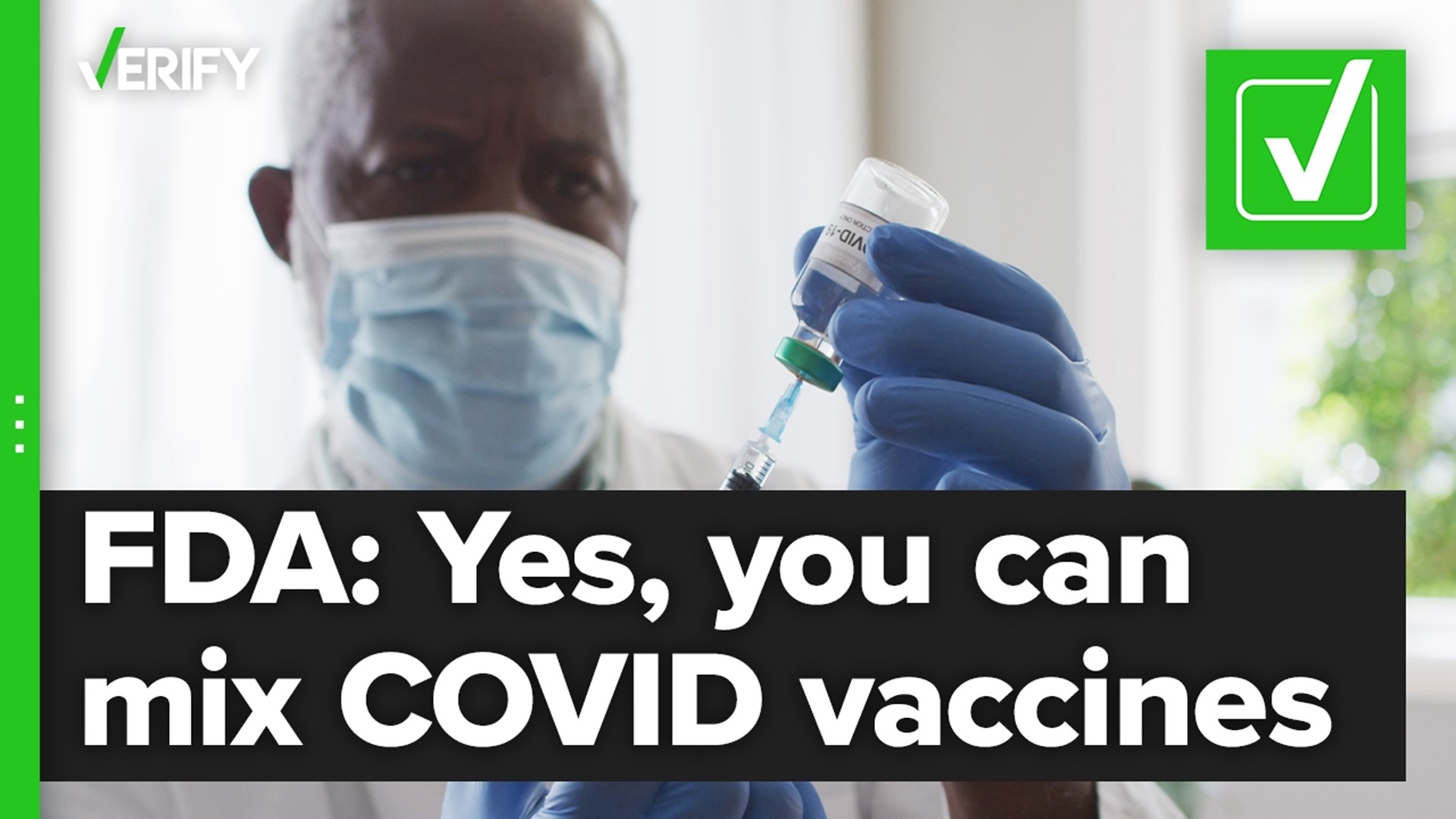The U.S. Food and Drug Administration (FDA) officially authorized COVID-19 vaccine booster doses for Johnson & Johnson vaccine recipients and some people who received Moderna’s vaccines on Oct. 20. The FDA previously authorized Pfizer vaccine booster shots for eligible populations in September.
For months, several VERIFY viewers and people searching online have been asking whether they’ll be able to “mix and match” COVID-19 vaccine booster shots. The FDA previously said people should receive a booster of the same vaccine they originally received, but that guidance recently changed.
THE QUESTION
Can you “mix and match” the COVID-19 vaccine booster shots?
THE SOURCES
- U.S. Food and Drug Administration (FDA)
- U.S. Centers for Disease Control and Prevention (CDC)
- Study on Heterologous SARS-CoV-2 Booster Vaccinations, National Institute of Allergy and Infectious Diseases (NIAID)
THE ANSWER
Yes, you can now “mix and match” the COVID-19 vaccine booster shots.
WHAT WE FOUND
Along with the FDA’s Moderna and Johnson & Johnson booster shot announcement on Oct. 20, the agency also authorized the use of each of the available COVID-19 vaccines as a heterologous (“mix and match”) booster dose for eligible individuals who have completed the primary vaccination series with a different COVID-19 vaccine.
The FDA says it determined that the known and potential benefits of the use of a single “mix and match” booster dose outweigh the known and potential risks of their use in eligible populations. This recommendation comes after a presentation of clinical trial data from the National Institute of Allergy and Infectious Diseases (NIAID), the Vaccines and Related Biological Products Advisory Committee’s discussion of information submitted for consideration, along with the agency’s evaluation of the available data.
The preliminary study, released on Oct. 15 by the NIAID, found that individuals who received Johnson & Johnson’s vaccine produced a stronger antibody response after getting booster doses of Moderna or Pfizer vaccines, compared to boosters from Johnson & Johnson. The researchers also found that people who were originally vaccinated with the Pfizer or Moderna vaccines and received either company’s booster shot produced similarly strong immune responses. The study has not yet been peer-reviewed.
According to the FDA, the eligible population(s) and dosing interval for a “mix and match” booster dose are the same as those authorized for a booster dose of the vaccine used for primary vaccination.
The agency now recommends the Moderna booster for those over the age of 65 and high-risk adults at least six months after they completed their primary series of shots. The Moderna booster dose is half of the dose that is administered for a primary series dose, according to the FDA. It also endorsed Johnson & Johnson boosters for adults over 18 who received the one-dose vaccine at least two months ago.
This means people who received the Johnson & Johnson vaccine who are over the age of 18 may receive a single booster dose of either the Johnson & Johnson, Moderna or Pfizer vaccines at least two months after receiving their initial dose of the Johnson & Johnson vaccine. The FDA also says people who received the Moderna or Pfizer vaccines who are eligible to receive a booster dose are now able to get a booster of any of the three available vaccines at least six months after completing their primary vaccination.

